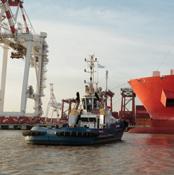





Ultratug is one of the leading tugboat suppliers within Latin America; it is part of the Ultranav shipping group, specialising in the operation of tug, salvage and offshore vessel fleets. With over 15 years’ experience at the group, CEO Cristián Lyon spoke in depth about the current economic climate within the tug and offshore vessel industry with Daniel Barnes and Imogen Ward.
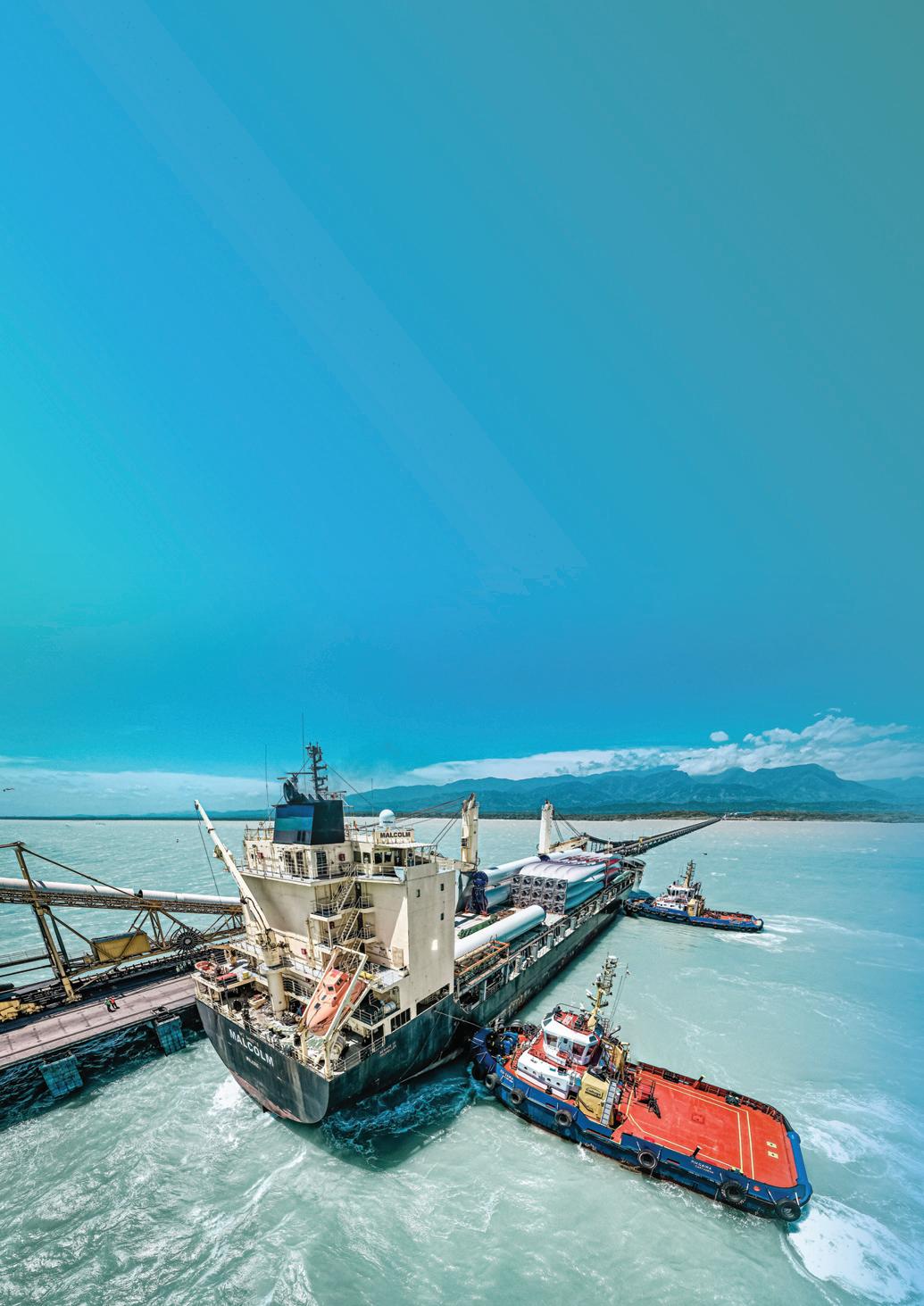
Headquartered in Chile, Ultratug is a diligent, dependable vessel operator. It is currently operational in eight countries; this includes Brazil where it runs PSVs for the offshore sector under a joint venture with Wilson Sons. Ultratug has an impressive crew size of 1000 who operate a variety of vessels including tugs, pushers, barges, OSV´s, and pilot boats, in more than 45 ports across Latin America. The company also boasts an impressive 20 years’ experi ence specialising in terminal work.
Ultratug is a highly experienced vessel operator: this year alone it completed 30,000 manoeuvres.
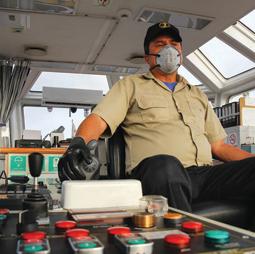
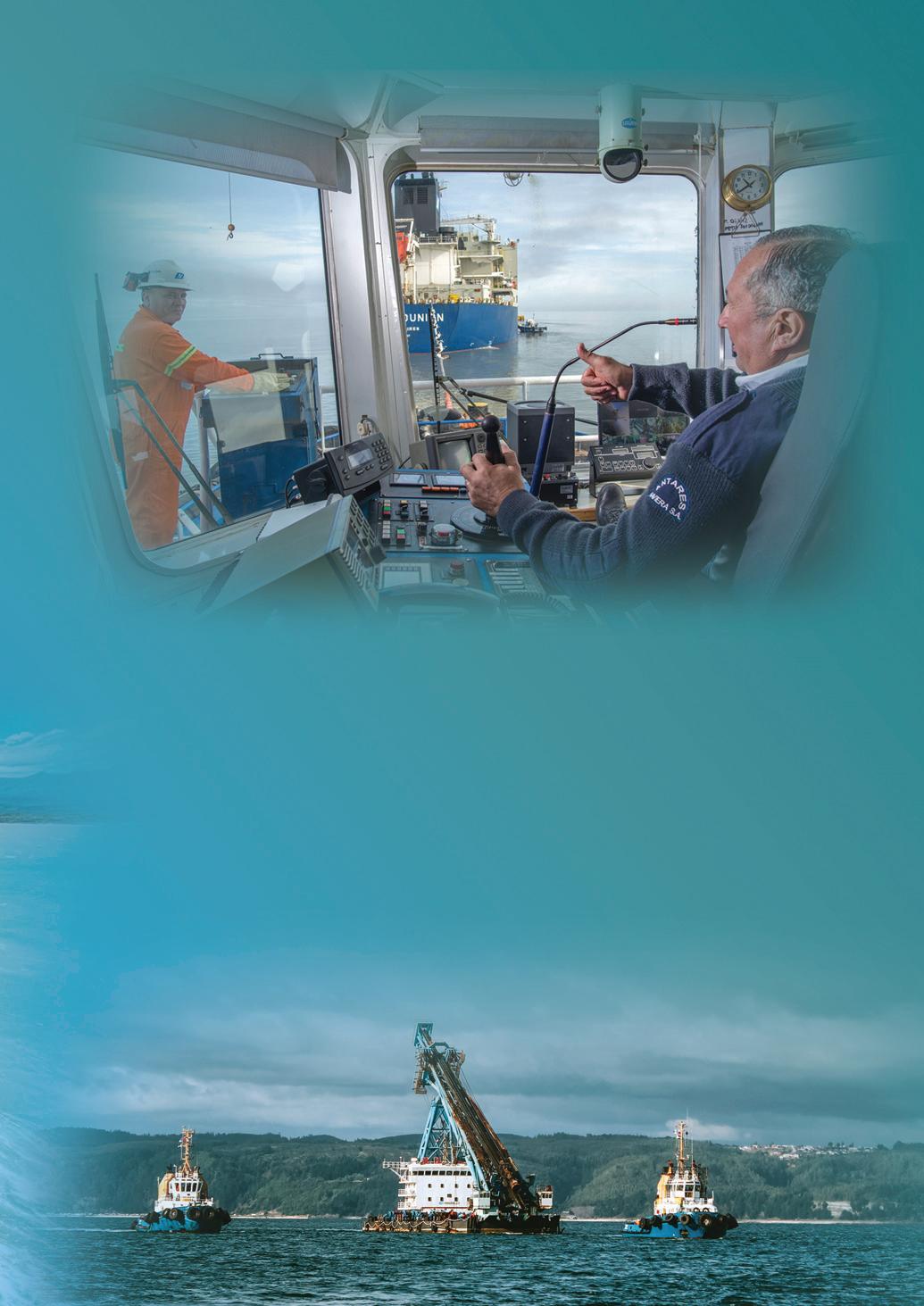
The company is always looking to improve its environmental impact. As an example, Ultratug is currently offsetting its emis
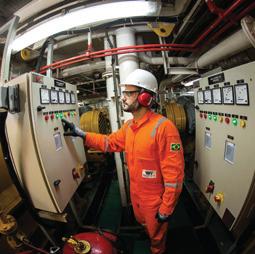
sions in Colombia via the purchase of green bonds. Coltugs has recently been certified as a Carbon Neutral company by Bureau Veritas (BV) with the ISO 14064 y PAS 2060: the first company in the mar itime industry of Colombia that complies with the BV standard to measure green house emissions, and offsets 100% of the national operation through green bonds to finance reforestation projects.
Looking to the future, Ultratug hopes to invest in the best renewable fuel source. To do this, the company is doing extensive research into the different new technologies regarding propulsion systems, ensuring that it chooses the most sustainable and reliable source possible.
Cristián Lyon, CEO of Ultratug, felt it would take a few years to have a good variety of new technologies available, but
for the moment it is interesting to analyse and develop a project involving engine pro ducers, yards and clients where all parties will see benefits.
“We need to also take into account the fit between technologies and the operation pro file of the port or region where the tug will be deployed,” said Mr Lyon. He continued that going for the second-hand market in conventional diesel tugs is a good idea, while waiting for the most reliable fuel source in an equally effective and sustain able package.

When discussing the options, Mr Lyon said: “Hybrids are particularly good when you have long navigations. Fully electric is continuing to improve – delivering more power and operational reliability each time, and some others are coming such as methanol, which is very interesting.
Like all sectors, the tugboat industry has felt the effects of the current economic cli mate. With inflation rates at an all-time high and an increase in living cost, Ultratug has had to overcome several challenges.
The first challenge that the company faced was the potential cost of developing tugs that
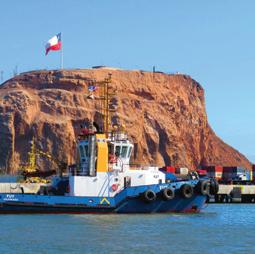
can process renewable fuels. The technology required for such an upgrade can be costly and would involve a greater commitment of investment funds and time.
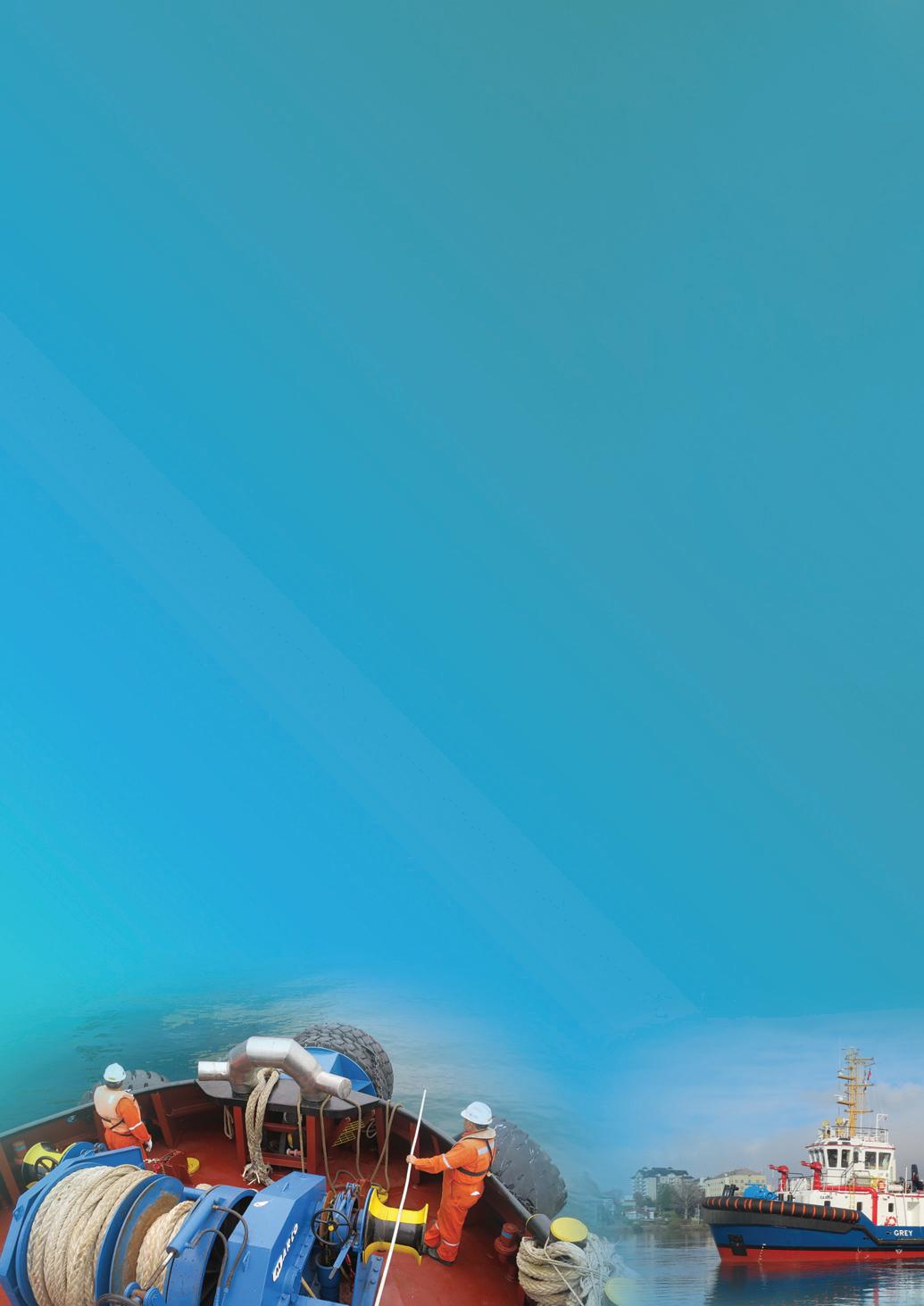
There is also the previously mentioned decision of what fuel type to use going for ward. Ultratug, however, has experienced change before when the market moved to ASD tugboats, so it is prepared to transi tion when the time is right.
The ability to replace boat parts has also been a challenge because of slow delivery times: this can lead to tugs being out of action. Therefore, Ultratug always works hard to maintain the relationships it has between shipyards, suppliers, and investors, ensuring that these companies are kept up to date with all vessel-related breakdowns.


To help maintain these relationships and gain a better understanding of what Ultratug’s investors and suppliers are looking for, Ultratug attends various events and tradeshows throughout the year, including the ITS Convention in Istanbul.
Regarding the conference, Mr Lyon said: “it is a brilliant opportunity to see all the latest technology and witness first-hand the advancements that suppliers are making.
Not just that, but it also allows us to gain a better understanding of them and continue to build those relationships.”
Ultratug also maintains a strong relation ship with several shipyards for its fleet renewal and growth. This includes local and international alternatives depending on availability, delivery time, design and, of course, quality.

Ultratug takes the wellbeing of its crews very seriously, especially when it comes to the safety and training of those
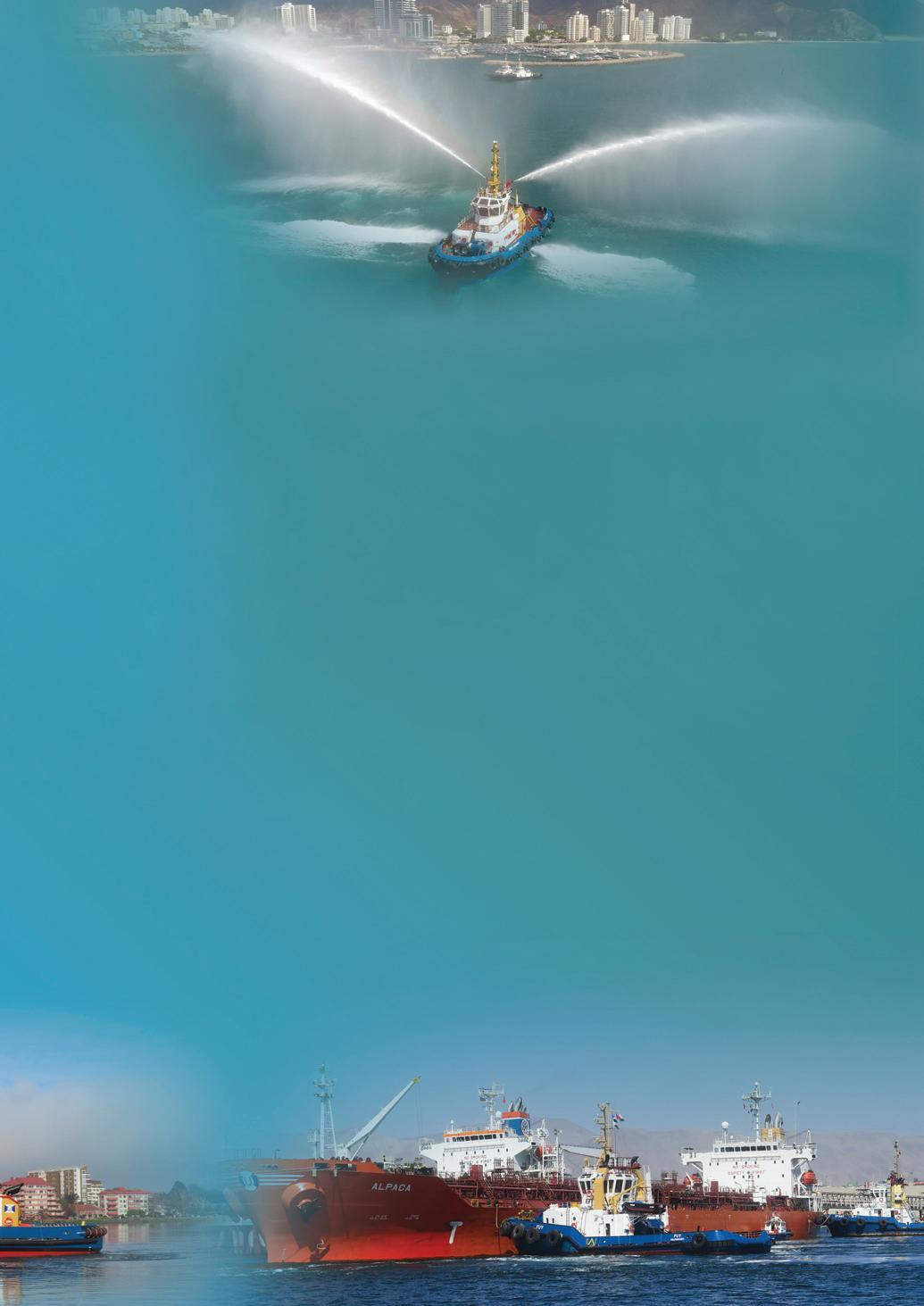
onboard its vessels. The company sees its employees as its strongest asset; therefore, it continues to implement structures that guarantee the wellbeing of all Ultratug workers.
During the pandemic, Ultratug ensured that the crews were as safe as they could be. If someone caught Covid, the company made sure all crew members would isolate at home and requested testing to minimise the spread of the virus. This of course came with its own set of challenges; short staffing resulted in tugs being non-opera tional for several weeks at a time.
Despite the tribulations brought on by the pandemic, Ultratug bounced back to pre-Covid operations, and is confident in the recovery achieved by the marine vessel market.
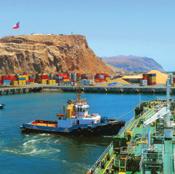
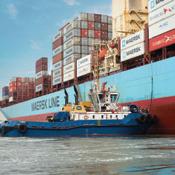
“The standards we implement are extremely high in terms of procedures, safety and maintenance,” Mr Lyon con cluded. “We want to continue in the market, being known as the company with a strong and powerful fleet who are dependable and maintain the highest principles.” n www.ultratug.com
